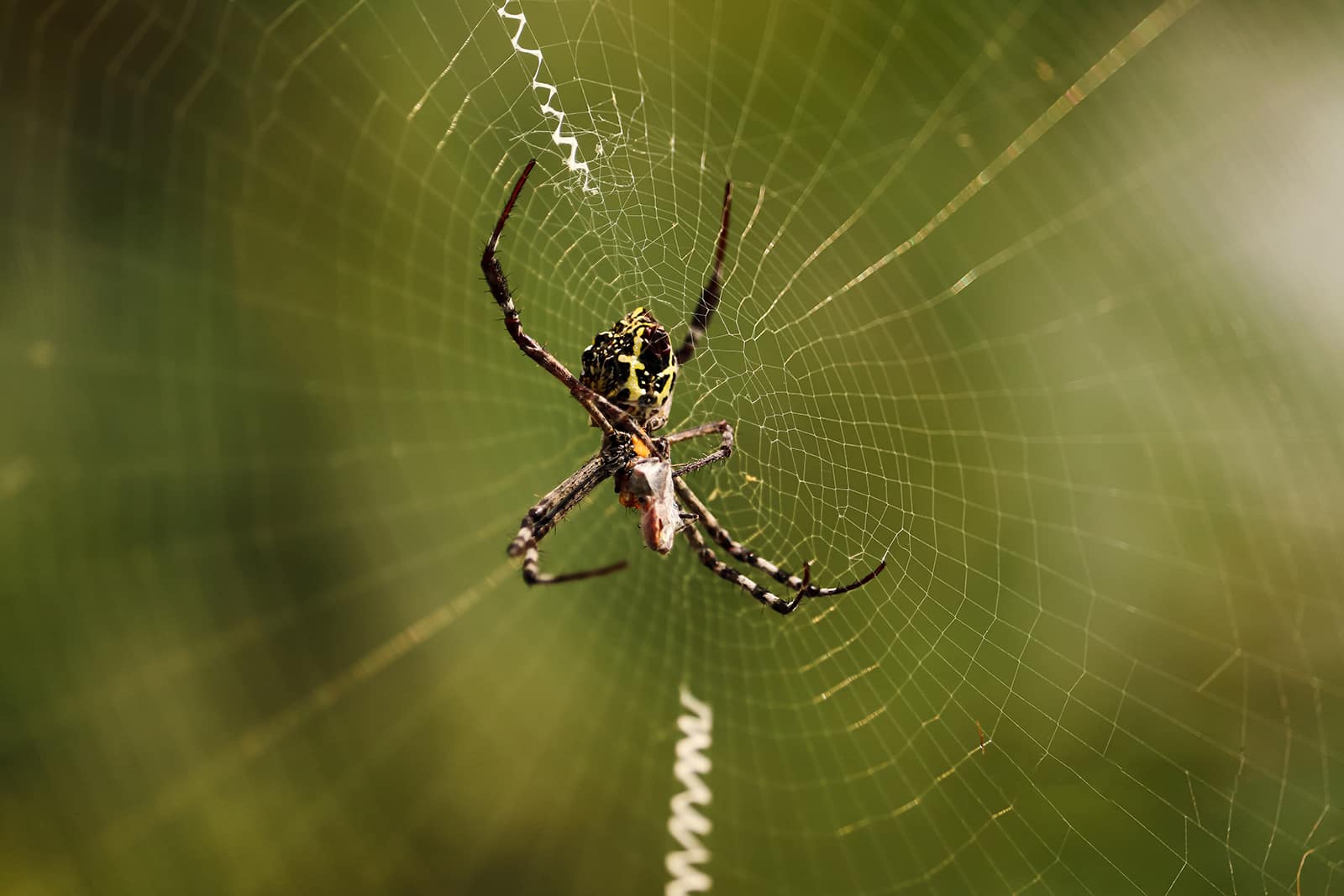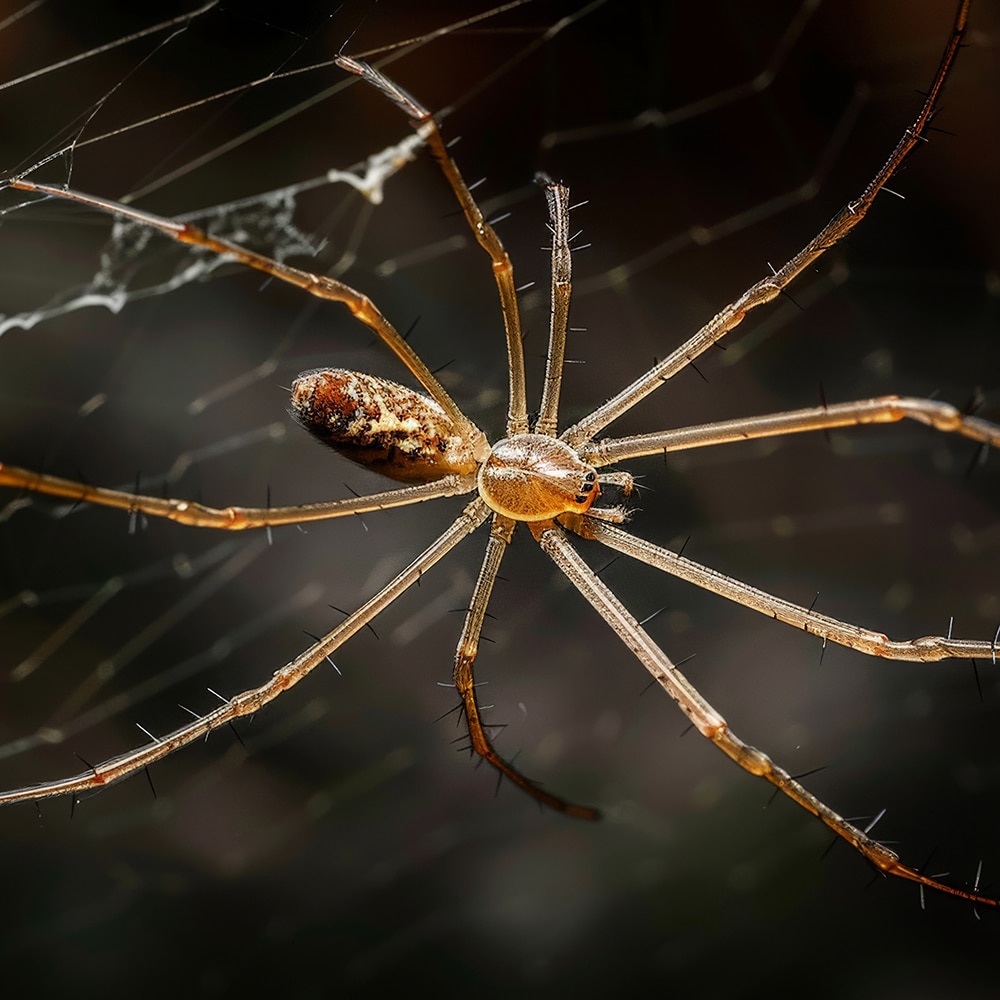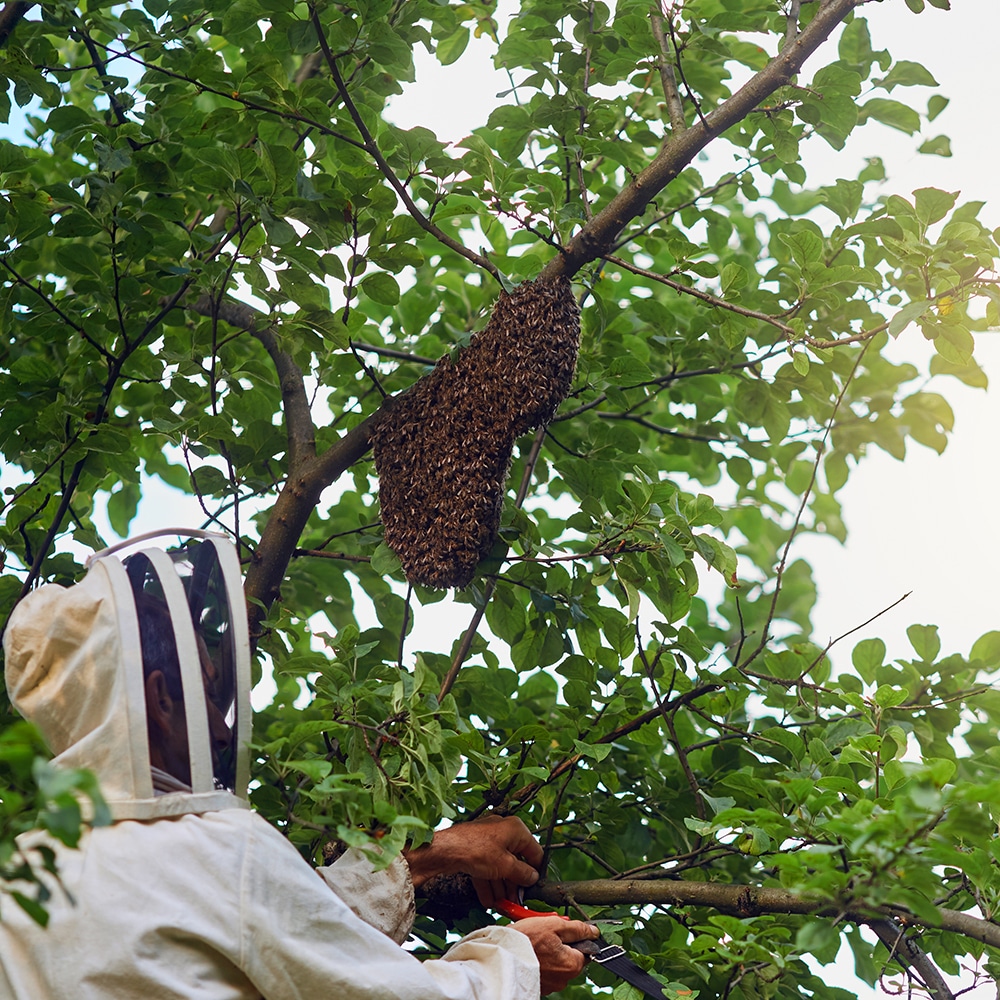
Why Do Spiders Come Back And Why
Why Do Spiders Come Back And Why On The Central Coast NSW. Responsive Proactive Solutions. Detail-focused for lasting results. Call Adam on 0431 222 894
Are spiders causing trouble in your Central Coast NSW home? The best natural ways to get rid of spiders can help. These methods offer a reliable, trustworthy approach to pest control. Discover solutions with Vital Pest Control for proactive, detail-focused results.
Do natural remedies work for spider control?
Yes, natural remedies can effectively manage spiders. They provide a safe, eco-friendly alternative to chemicals. These solutions are especially beneficial for families and pets, ensuring a healthy home environment.
How to use peppermint oil to repel spiders
Peppermint oil is a powerful spider repellent. Mix 10 drops with water in a spray bottle. Apply along windowsills and doorways. This method creates an unwelcome environment for spiders.
Can vinegar keep spiders away?
Vinegar’s strong scent deters spiders. Combine equal parts vinegar and water. Spray in corners and crevices. It’s a simple, effective way to keep spiders at bay.
How to use diatomaceous earth for spider control
Sprinkle diatomaceous earth in areas where spiders frequent. This natural powder dehydrates and eliminates them. It’s a long-lasting solution that keeps spiders away.
Best plants that naturally repel spiders
Marigolds, lavender, and eucalyptus naturally deter spiders. Plant them around your home for a spider-free zone. These plants also enhance your garden’s beauty.
How to make a homemade spider repellent spray
Create a spray with water, essential oils, and vinegar. Use regularly for effective spider control. This homemade solution is easy to prepare and apply.
Do citrus peels deter spiders?
Spiders dislike citrus scents. Rub peels along baseboards and windowsills. This method is a natural and fragrant deterrent.
How to use baking soda for spider prevention
Baking soda absorbs moisture, deterring spiders. Sprinkle in damp areas to reduce spider activity. It’s a simple, affordable solution for spider prevention.
Discover how we can help you today! Visit our Contact page for more information.

In Central Coast NSW, spiders often weave their webs indoors and outdoors, leading many to seek effective control methods. While pesticides offer a solution, more people are turning to natural remedies. But do these natural remedies really work for spider control?
Essential Oils as Spider Deterrents
Essential oils, like peppermint and eucalyptus, emit strong scents that spiders find repelling. Spraying a mixture of essential oil and water around windows and doors can discourage spiders from entering. Although these oils may not eliminate existing spiders, they act as a deterrent, reducing the likelihood of future infestations. Regular application ensures consistent effectiveness.
Vinegar Solutions for Immediate Action
Vinegar, a common household item, can serve as a natural spider repellent. Its acidic nature disrupts spiders, making it a useful tool for immediate spider control. Mix equal parts vinegar and water, then spray in areas prone to spider activity. This solution not only repels spiders but also helps to clean surfaces, providing dual benefits for homeowners.
Natural Predators in the Garden
Encouraging natural predators, such as birds and lizards, can help control spider populations outdoors. Planting native flora attracts these creatures, creating a balanced ecosystem. While more of a long-term approach, fostering natural predators can be an effective strategy for reducing spider numbers without harmful chemicals.
Peppermint oil is a natural and effective way to repel spiders, making it a popular choice for pest control on the Central Coast of NSW. Its strong scent acts as a deterrent, keeping spiders at bay without the need for harsh chemicals.
Choosing the Right Peppermint Oil
When selecting peppermint oil, opt for a high-quality, pure essential oil. This ensures the scent is potent enough to deter spiders. Look for oils that are certified organic, as these tend to have fewer additives that could dilute their effectiveness.
Preparing the Peppermint Spray
To make a peppermint spray, mix about 10-15 drops of peppermint oil with 200 millilitres of water in a spray bottle. Adding a teaspoon of dish soap can help the mixture adhere to surfaces. Shake the bottle well before each use to ensure the ingredients are combined.
Application Techniques
Spray the peppermint mixture around door frames, windowsills, and other entry points where spiders are likely to enter. Reapply every few days, or after cleaning, to maintain its effectiveness. Consider using cotton balls soaked in the mixture for smaller, more targeted areas.
Monitoring and Maintenance
Keep an eye on common spider hotspots, such as corners and basements. Regularly inspect these areas and reapply the peppermint spray as needed. Consistent use will help maintain a spider-free environment.
Vinegar is often touted as a natural remedy to deter spiders, making it an appealing option for those on the Central Coast of NSW looking for eco-friendly pest control. This common household item offers a simple and chemical-free way to manage unwanted arachnids.
How Does Vinegar Repel Spiders?
Acetic acid in vinegar is a key component that can ward off spiders. The pungent smell disrupts their sensory organs, deterring them from making themselves comfortable in your home. By spraying a mixture of vinegar and water around windowsills, doorways, and corners, you create an environment that spiders find uninviting.
Application Tips for Best Results
For optimal effectiveness, mix equal parts of water and white vinegar in a spray bottle. Apply the solution to areas where spiders are likely to enter or hide. Regular applications, especially during warmer months when spiders are more active, can significantly reduce their numbers. Be sure to test the solution on a small area first to ensure it doesn’t damage surfaces.
Additional Benefits and Considerations
Using vinegar is not only safe for humans and pets but also cost-effective. However, its strong smell may be off-putting to some people. Ventilate the area well after application to minimise the odour. While vinegar can help manage spider presence, it works best when combined with other natural methods such as decluttering and sealing entry points.
Spiders can be a common nuisance, especially in homes and gardens on the Central Coast of NSW. Diatomaceous earth offers an effective, natural way to manage these unwanted guests. This fine powder, made from crushed fossilised algae, disrupts a spider’s exoskeleton, leading to dehydration and eventual death. Here’s how you can use it for effective spider control.
Choosing the Right Diatomaceous Earth
It’s crucial to select food-grade diatomaceous earth for spider control, ensuring safety for pets and humans. This type is free from harmful additives, making it ideal for use in homes and gardens. Avoid pool-grade diatomaceous earth as it contains chemicals unsuitable for pest control.
Application Methods
Apply diatomaceous earth in thin layers around entry points, like windowsills and door frames. Focus on areas where spiders commonly appear, such as basements, attics, or garages. Use a hand duster or a fine brush to spread the powder for even coverage, increasing its effectiveness in trapping spiders.
Reapplying and Monitoring
Reapply diatomaceous earth after cleaning or rainfall, as moisture can reduce its effectiveness. Regularly check and refresh the powder in high-traffic areas to maintain its spider-repelling properties. With consistent application, this natural solution can significantly reduce spider populations in and around your home.
Living on the Central Coast, dealing with spiders in and around your home can be a frequent annoyance. Fortunately, nature provides some excellent allies in the form of plants that naturally repel these eight-legged intruders. Incorporating these plants into your garden or home environment can be a simple yet effective strategy for spider management.
Lavender
Lavender offers a delightful aroma to humans but acts as a powerful deterrent to spiders. Plant lavender around windows or doorways to keep spiders at bay. Its calming scent is a bonus, creating a relaxing atmosphere in your garden or home.
Mint
Mint plants, with their refreshing fragrance, repel spiders effectively. You can grow mint in pots or garden beds. Its invasive nature means mint spreads quickly, so it’s best to contain it in a pot if space is limited. Plus, fresh mint leaves are handy for culinary use.
Citronella
Famous for its mosquito-repelling properties, citronella is also effective against spiders. Plant it in sunny spots around your garden. This plant requires minimal maintenance, making it an easy addition to your pest control arsenal.
Marigold
Marigolds not only bring vibrant colour to your garden but also act as a natural spider repellent. Their strong fragrance deters spiders and other pests. Plant marigolds in flower beds or pots to add beauty and functionality to your outdoor space.
Spiders can be pesky intruders in homes on the Central Coast of NSW. Many homeowners prefer natural methods to deter these eight-legged visitors. Crafting a homemade spider repellent spray offers a simple, eco-friendly solution.
Ingredients You’ll Need
To create an effective spider repellent, gather essential oils such as peppermint or tea tree oil, water, and white vinegar. These oils are known for their strong scents that spiders dislike. Vinegar adds an extra layer of deterrence.
Mixing the Solution
Combine two cups of water with one cup of white vinegar in a spray bottle. Add around 15 to 20 drops of your chosen essential oil. Shake the mixture well to ensure the oil disperses evenly. This blend is ready to tackle spider problems.
Application Tips
Spray your homemade solution in areas where spiders frequently appear, such as corners, windowsills, and door frames. Reapply every few days, especially after cleaning or rain. Consistent use keeps spiders at bay and maintains a fresh scent in your home.
Creating a homemade spider repellent spray is a practical step for pest control. It blends natural ingredients and effective application techniques to help keep spiders out of your living space.
Citrus peels, often overlooked kitchen scraps, have gained attention as a natural spider deterrent. Many homeowners on the Central Coast of NSW are keen on eco-friendly methods to manage pests, making citrus peels an appealing option. But do they really work against spiders?
How Citrus Peels May Repel Spiders
Spiders have a keen sense of smell, and citrus peels contain essential oils that emit a strong aroma. These oils, especially limonene, are thought to irritate or confuse spiders. When you place peels around entry points or corners, the scent may discourage spiders from getting too comfortable. This natural method offers a pleasant-smelling alternative to chemical sprays.
Using Citrus Peels Effectively
To maximise their potential, use fresh peels. Rub them onto surfaces where spiders frequent, like windowsills or door frames. This releases more essential oils, intensifying the scent. Replace peels every few days to maintain effectiveness. Pairing them with other natural deterrents, such as vinegar, can enhance results.
Limitations of Citrus Peels
While citrus peels can deter some spiders, they are not a foolproof solution. Their impact varies depending on spider species and individual sensitivity. For significant infestations, professional pest control services may be necessary. Vital Pest Control on the Central Coast can provide comprehensive solutions tailored to your needs.
Spiders are more than just creepy crawlers; they can be unwelcome guests in your home. On the Central Coast NSW, where spiders are common, knowing how to prevent them naturally can be a game-changer. Baking soda, a staple in many households, offers a simple yet effective solution for spider prevention.
Understanding the Role of Baking Soda
Baking soda acts as a natural deterrent for spiders. Its abrasive texture can irritate spider legs, discouraging them from lingering. Sprinkling a thin line of baking soda along entry points like windowsills and doorways can create a barrier that spiders tend to avoid. This method not only helps in deterring spiders but also in keeping your home chemical-free.
Combining Baking Soda with Essential Oils
Enhance the effectiveness of baking soda by combining it with essential oils like peppermint or tea tree. Mix a few drops of essential oil with baking soda, then spread it where spiders frequent. The strong scent of these oils is known to repel spiders, making this combination a formidable spider deterrent.
Regular Maintenance for Lasting Results
Consistency is key in spider prevention. Regularly check and refresh your baking soda barriers to ensure they remain effective. This method not only reduces spider presence but also maintains a fresh-smelling home, creating an inhospitable environment for spiders.
Essential oils offer a natural alternative for spider control, particularly for those on the Central Coast of NSW seeking eco-friendly pest solutions. These oils not only deter spiders but also add a refreshing aroma to your space. By understanding which oils work best, you can maintain a spider-free home without resorting to harsh chemicals.
Peppermint Oil
Peppermint oil proves highly effective against spiders due to its potent scent. Spiders, with their keen sense of smell, find peppermint overwhelming. To use, mix a few drops with water in a spray bottle. Apply in corners, crevices, and other spider-prone areas. Regular application boosts effectiveness.
Lavender Oil
Lavender oil not only repels spiders but also provides a calming atmosphere. Its floral scent masks the pheromones spiders use to communicate, disrupting their presence. For best results, use a diffuser or apply directly to cotton balls and place around entry points. Lavender oil serves as a dual-purpose solution, combining pest control with relaxation.
Tea Tree Oil
Tea tree oil offers robust spider control thanks to its strong aroma. Known for its antibacterial properties, it repels spiders while also benefiting overall home cleanliness. Mix with water and spray in spider-prone areas for ongoing protection. This natural solution fits perfectly within holistic pest management strategies.
Spiders often find their way into homes, creating challenges for many on the Central Coast NSW. While chemicals can be effective, there are natural methods to deter these critters without harming the environment.
Keep Your Home Clean
Maintaining a clean home is crucial. Spiders thrive in cluttered areas where they can hide. Regularly vacuuming corners, along with dusting window sills and ceilings, can discourage them from settling. Also, removing webs as soon as they appear disrupts their habitat, encouraging them to move elsewhere.
Seal Entry Points
Sealing entry points is another effective measure. Check for cracks around windows and doors, and seal these gaps with caulk or weatherstripping. Installing door sweeps can also help prevent spiders from creeping indoors. This not only keeps spiders out but also reduces other pests that might attract them.
Use Natural Repellents
Natural repellents like peppermint oil can deter spiders. Mixing a few drops of peppermint oil with water in a spray bottle and applying it around entry points and corners can be effective. Spiders dislike the strong scent, which encourages them to find homes elsewhere.
These simple, chemical-free strategies can help maintain a spider-free home, promoting a more comfortable living environment on the Central Coast. Regular upkeep and natural deterrents can keep spiders at bay effectively.
Keeping your home dry not only enhances comfort but also plays a significant role in reducing spider infestations. Spiders are commonly attracted to damp environments, making it crucial to maintain a dry home. Let’s explore how addressing moisture can help keep these eight-legged creatures at bay.
Understanding Spider Preferences
Spiders are naturally drawn to moist environments because they often provide abundant hiding spots and a rich supply of other insects they prey upon. In Central Coast NSW, the humid conditions can make homes especially inviting to spiders. By reducing moisture, you disrupt their ideal living conditions, making your home less appealing to them.
Addressing Leaks and Ventilation
Fixing leaks and enhancing ventilation are essential steps in keeping your home dry. Leaky pipes or a damp basement can create a fertile breeding ground for spiders. Ensure that your home has adequate ventilation, particularly in moisture-prone areas like bathrooms and kitchens, to help in drying out spaces effectively.
Using Dehumidifiers
Dehumidifiers can be an excellent tool in maintaining low humidity levels indoors. By extracting excess moisture from the air, these devices make your home less inviting for spiders and other pests. Consider placing dehumidifiers in areas that are prone to dampness to keep the environment dry and spider-free.
Spiders can be a nuisance in homes, especially on the Central Coast of NSW. Many residents seek natural solutions to deal with these eight-legged invaders. While sprays are commonly used, spider traps offer an effective alternative for vital pest control. Let’s explore why spider traps might be a more suitable option for your home.
Effectiveness of Spider Traps
Spider traps work by luring spiders into a sticky surface where they become immobilised. These traps are particularly effective because they target spiders specifically, unlike sprays that might affect other insects or pose health risks to pets and humans. By placing traps in areas where spider activity is high, you can significantly reduce their numbers over time.
Safety and Environmental Impact
Another advantage of spider traps is their safety. Unlike chemical sprays, traps do not release toxins into your home environment. This makes them an eco-friendly choice, reducing potential harm to other wildlife and your family. For those conscious about environmental sustainability, spider traps align well with natural pest control methods.
Cost-Effectiveness of Traps
Spider traps are generally cost-effective. They require minimal maintenance and can be left in place for weeks, making them a convenient long-term solution. This contrasts with sprays, which may need frequent reapplication. Investing in spider traps can lead to savings over time, providing a practical option for managing pests without constant expenditure.
Keeping your garden spider-free naturally can be a practical and eco-friendly way to maintain a comfortable outdoor space. While not all spiders are harmful, their presence can be unsettling for many. By using natural methods, you can deter them without harming the ecosystem.
Encourage Natural Predators
Introducing or encouraging natural predators like birds can help control spider populations. Hang bird feeders to attract species that consume spiders. Ladybirds and frogs also help by preying on insects that spiders eat, indirectly reducing spider numbers.
Maintain a Tidy Garden
Regular garden maintenance can deter spiders from making homes. Trim bushes and remove debris such as leaves and wood piles where spiders might nest. A clean, organised garden offers fewer hiding spots for these arachnids.
Use Essential Oils
Essential oils like peppermint, eucalyptus, and tea tree naturally repel spiders. Mix a few drops with water in a spray bottle and apply around garden edges and potential entry points. This creates a barrier that spiders are less likely to cross.
Plant Spider-Repelling Plants
Consider planting lavender, mint, or lemon balm. These plants naturally repel spiders and can enhance garden aesthetics. Their strong scents are unappealing to spiders, keeping them at bay while providing a fragrant garden environment.
Decluttering your home can significantly reduce the chances of a spider infestation. Spiders love dark, cluttered areas where they can hide and build webs undisturbed. By keeping your living spaces tidy, you eliminate potential hiding spots, making your home less appealing to these eight-legged intruders.
Reducing Spider Habitats
A cluttered environment provides numerous nooks and crannies for spiders to settle in. By organising and minimising clutter, you decrease the number of potential habitats. This not only discourages spiders from moving in but also makes it easier to spot any that have already taken up residence. Regular cleaning and tidying ensure that your rooms remain unattractive to these pests.
Improving Visibility
When your home is clutter-free, spotting a spider becomes much easier. Improved visibility means you can quickly deal with any spiders that do manage to enter your home before they become a bigger problem. This proactive approach helps in maintaining a spider-free environment.
Removing Food Sources
Spiders often enter homes in search of food, primarily insects. Cluttered spaces can harbour other pests, providing a food source for spiders. By decluttering, you can also reduce these insect populations, cutting off the food supply and further discouraging spiders from setting up shop in your home.
Spiders can often be a nuisance on the Central Coast NSW, especially when they start spinning webs around your home. While many natural methods help manage them, sometimes it’s best to call in the experts. Knowing when to seek professional natural pest control can save time and stress.
Persistent Infestations
If you’ve tried natural remedies but spiders keep coming back, it might be time to consult professionals. Persistent infestations suggest an underlying issue that needs addressing. Experts can identify the source and apply natural pest control techniques effectively.
Safety Concerns
Some spiders in the Central Coast can pose risks to your family or pets. If you’re worried about venomous types or have noticed an increase in sightings, professional pest control ensures safety while using eco-friendly solutions.
Property Damage
When spider webs start affecting your home’s appearance or functionality, it’s wise to act. Professionals can remove webs and prevent future buildup, maintaining your property’s value and aesthetics with minimal environmental impact.
Time Constraints
Managing pest control can be time-consuming. If your schedule is packed, hiring professionals who specialise in natural methods allows you to enjoy a spider-free environment without the hassle.
Please leave your details in the form and we will call you back the same day.
So that we can process your enquire efficiently please leave as many details as possible and upload any relevant images. (.jpg and .png format)

Why Do Spiders Come Back And Why On The Central Coast NSW. Responsive Proactive Solutions. Detail-focused for lasting results. Call Adam on 0431 222 894

Building a Long Term Residential Pest Protection Plan For Home Owners On The Central Coast NSW. Responsive Proactive Solutions. Detail-focused for lasting results. Call Adam on 0431 222 894

How to Protect Your Home from Wasp Infestations On The Central Coast NSW. Responsive Proactive Solutions. Detail-focused for lasting results. Call Adam on 0431 222 894